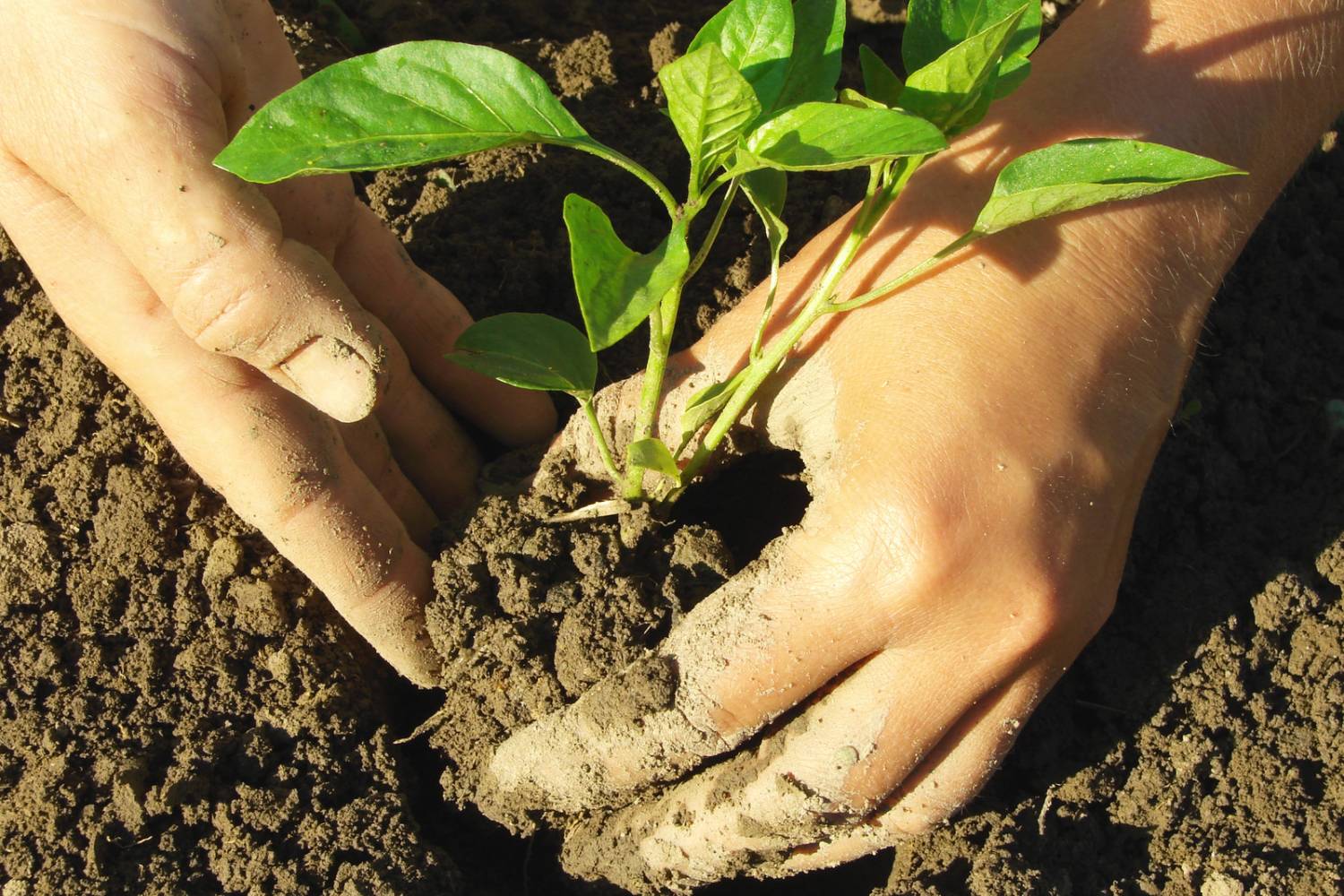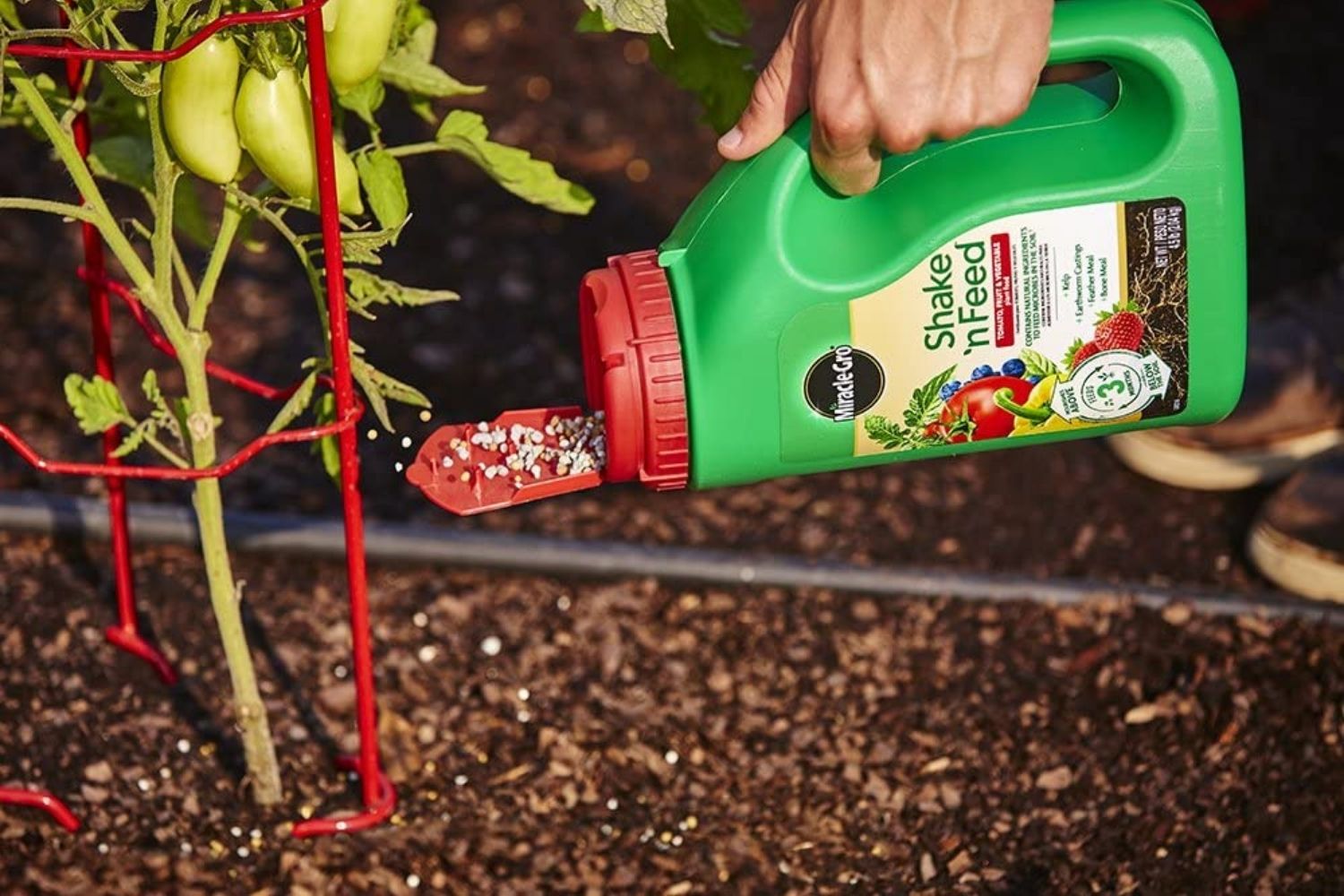Uncover the Best Fertilizers for Peppers: Vital Nutrients for Prospering Plants
Uncover the Best Fertilizers for Peppers: Vital Nutrients for Prospering Plants
Blog Article
The Ultimate Guide to Feeding Peppers: Enhancing Development and Flavor Normally
As pepper fanatics look for to cultivate robust plants producing tasty fruits, the role of fertilization becomes vital in accomplishing these objectives. By discovering the benefits of all-natural plant foods, opening the tricks behind pepper plant nutrient needs, and delving right into the world of natural fertilizer alternatives, a globe of possibilities arises for boosting the vigor and taste profile of these precious plants.
Benefits of Natural Fertilizers
All-natural fertilizers use a range of benefits that add to the overall health and wellness and productivity of pepper plants. Unlike artificial plant foods, natural choices supply crucial nutrients in a form that is conveniently taken in by the plants, promoting durable development and development. One of the vital benefits of all-natural fertilizers is their capability to boost soil structure and fertility gradually. By improving the dirt with raw material, such as garden compost or manure, all-natural fertilizers improve its water retention capacity and nutrient-holding capacities, developing an extra hospitable setting for pepper plants to grow in.
Furthermore, all-natural fertilizers sustain a diverse and energetic soil microbiome, cultivating useful microbial activity that assists in nutrient recycling and uptake by the plants. This microbial task can help reduce dangerous microorganisms and diseases, lowering the requirement for chemical interventions. In addition, natural fertilizers advertise long-term dirt health by preserving a balanced ecosystem underground, which subsequently sustains the general wellness and resilience of pepper plants over ground.
Comprehending Pepper Plant Nutrient Demands
Having actually established the benefits of organic fertilizers in improving dirt wellness and promoting microbial activity, the emphasis now moves to comprehending the details nutrient requirements necessary for optimum development and flavor in pepper plants.

Comprehending the details nutrient needs of pepper plants is critical for accomplishing plentiful harvests with outstanding taste. By offering the best equilibrium of nutrients via organic fertilizers or soil modifications, farmers can guarantee healthy and balanced, strenuous plants that produce delicious peppers throughout the expanding season.
Organic Fertilizer Options for Peppers
In enhancing the development and taste of pepper plants, selecting the ideal natural fertilizers is a critical factor to consider. Organic plant foods use a natural and lasting way to nourish pepper plants without introducing dangerous chemicals to the dirt and atmosphere. One preferred alternative is compost, which enriches the dirt with vital nutrients and enhances its framework, advertising healthy origin advancement and overall plant development. In addition, compost aids retain wetness in the soil, minimizing water stress and anxiety on pepper plants during heat.
One more efficient natural fertilizer for peppers is aged manure. Rich in potassium, nitrogen, and phosphorus, aged manure gives a balanced nutrient mix that sustains strenuous development and plentiful fruit production (best fertilizers for peppers). It is necessary web to utilize well-aged manure to protect against melting the plants with excess ammonia
Fish emulsion is a fast-acting natural plant food that provides pepper plants with a quick boost of nutrients. Stemmed from fish waste, this fertilizer is high in nitrogen, making it particularly valuable throughout the very early phases of pepper plant development. Fish emulsion is easy to apply and is conveniently absorbed by the plants, advertising healthy vegetation and solid origin development.
When choosing an organic plant food for peppers, think about the details nutrient demands of your plants and go with choices that align with your horticulture techniques and values.
Ideal Practices for Fertilizing Pepper Plant Kingdoms
Thinking about the importance of picking suitable natural fertilizers for pepper plants, implementing ideal methods for fertilization next is important to guarantee optimal growth and taste advancement. Among the key finest techniques for feeding pepper plants is to carry out a soil test prior to using any fertilizers. This test will help establish the specific nutrient requirements of the dirt and overview you in selecting the right kind and amount of plant food. It is also crucial to fertilize pepper plants at the ideal time, usually prior to planting and throughout vital development stages such as flowering and fruit development.
Additionally, including natural matter right into the soil through garden compost or mulching can aid improve dirt structure, water retention, and nutrition accessibility, promoting much healthier pepper plants with boosted flavor accounts. By adhering to these best methods, you can properly nourish your pepper plants and achieve bountiful harvests with remarkable preference and quality.
Troubleshooting Common Fertilization Issues

pH discrepancy is another concern that can impact nutrient uptake in pepper plants. When the dirt pH is too expensive or too low, certain nutrients end up being unavailable to the plants. Consistently examining the soil pH and making modifications utilizing organic changes can aid preserve an ideal pH degree for ideal plant development. Finally, inconsistent fertilization techniques can result in irregular development and fruit growth. Developing a normal fertilizing timetable and adhering to suggested application rates can help avoid this problem and make sure healthy and balanced pepper plants throughout the growing period.
Conclusion
By understanding the nutrient needs of pepper plants and selecting organic plant food alternatives, garden enthusiasts can successfully advertise healthy and vigorous development. Following finest techniques for fertilizing pepper plants and troubleshooting typical fertilization issues can assist make certain effective farming of peppers.
By checking out the advantages of all-natural plant foods, unlocking the tricks behind pepper plant nutrient needs, and delving right into the world of organic plant food alternatives, a globe of opportunities arises for improving the vigor and taste account of these cherished plants.Fish solution is a fast-acting natural plant food that supplies pepper plants with a fast boost of nutrients. It is likewise important to feed pepper plants at the best time, typically prior to planting and during key development phases such as blooming and fruit advancement.
By comprehending the nutrient requirements of pepper plants and picking natural fertilizer alternatives, gardeners can efficiently promote vigorous and healthy growth. Complying with ideal practices for fertilizing pepper plants and fixing typical fertilization issues can help ensure successful cultivation of peppers.
Report this page